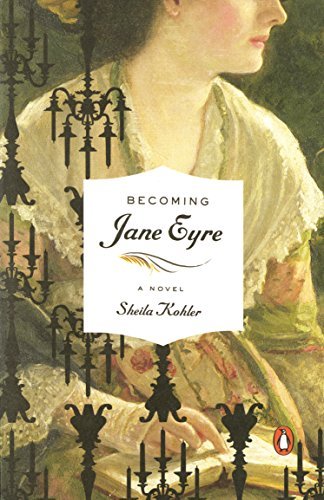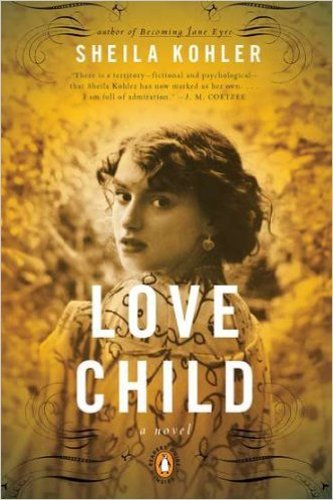Sheila Kohler
Sheila Kohler was born in Johannesburg, South Africa. She later lived in Paris for fifteen years, where she married and completed her undergraduate degree in literature at the Sorbonne and a graduate degree in psychology at the Institut Catholique. She moved to the United States in 1981 and earned an MFA in writing at Columbia University. She is the author of fourteen works of fiction, including the novels Cracks, Becoming Jane Eyre, and Dreaming For Freud, three short story collections, and her memoir Once We Were Sisters. She has won two O. Henry Prizes, an Open Fiction Award, a WILLA Literary Award, and a Smart Family Foundation prize. She teaches at Princeton University and lives in New York City.
For more information about Sheila Kohler:
News
Open Road has reissued Sheila Kohler’s CRACKS, with a new jacket.
Sheila Kohler’s OPEN SECRETS is longlisted for the 2022 Joyce Carol Oates Prize.
Books
Open Secrets
The lies between a husband and wife are revealed, unraveling their family in this thrilling novel that moves between the French Riviera, Switzerland, and Amagansett.
When Michel, a Swiss banker, discovers his wife Alice's betrayal he turns for help to a Russian client who leads him into unknown territory, endangering not only his own life but that of Alice, and above all, his fourteen-year-old daughter, Pamela. Their charmed life--a beautiful house on the French Riviera, elegant vacations, and boarding school in Switzerland for Pamela--is not all that it seems. As the repercussions of Michel's illicit deals move closer in around them, Alice finds herself in Amagansett with her artist sister who is having a crisis of her own, while the danger circles around Pamela. Open Secrets is a suspenseful novel about relationships, family, love and the inescapable consequences of one's own actions.
(Penguin, July 2020)
Cracks
In Sheila Kohler’s brilliant 1999 novel (now reissued), a beautiful schoolgirl mysteriously disappears into the South African veld. Forty years later, thirteen members of the missing girl’s swimming team gather at their old boarding school for a reunion, and look back to the long, dry weeks leading to Fiamma’s disappearance. As teenage memories and emotions resurface, the women relive the horror of a long-buried secret. A stunning and singular tale of the passion and tribalism of adolescence, Cracks lays bare the violence that lurks in the heart of even the most innocent.
(Open Road, February 2023)
Becoming Jane Eyre
The year is 1846. In a cold parsonage on the gloomy Yorkshire moors, a family seems cursed with disaster. A mother and two children dead. A father sick, without fortune, and hardened by the loss of his two most beloved family members. A son destroyed by alcohol and opiates. And three strong, intelligent young women, reduced to poverty and spinsterhood, with nothing to save them from their fate. Nothing, that is, except their remarkable literary talent.
So unfolds the story of the Bronte sisters. At its center are Charlotte and the writing of Jane Eyre. Delicately unraveling the connections between one of fiction's most indelible heroines and the remarkable woman who created her, Sheila Kohler's Becoming Jane Eyre will appeal to fans of historical fiction and, of course, the millions of readers who adore Jane Eyre.
(Viking/Penguin, December 2009)
Love Child
The compelling story of a forbidden marriage, a baby lost, and a love triangle gone horribly wrong, Love Child centers on Bill, a South African woman whose life has been defined by the apartheid-era, class-riven society in which she lives. Under pressure to make her will, Bill is forced to think about the momentous events and decisions that have made her an extremely wealthy if somewhat disillusioned woman. To whom should she leave her fortune? As Bill relives her past, we learn that this is a simple question with a complicated answer. In elegant, sensual, and nuanced prose, Kohler skillfully explores the space between our dreams and our reality, between our hopes and our disappointments.
(Penguin, July 2011)
Dreaming For Freud
Inspired by Sigmund Freud's "Dora: An Analysis of a Case of Hysteria," Dreaming for Freud paints a provocative and sensual portrait of one of history's most famous patients.
In the fall of 1900, Dora's father forces her to begin treatment with the doctor. Visiting him daily, the seventeen-year-old girl lies on his ottoman and tells him frankly about her strange life, and above all about her father's desires as far as she is concerned. But Dora abruptly ends her treatment after only eleven weeks, just as Freud was convinced he was on the cusp of a major discovery. In Dreaming for Freud, Kohler explores what might have happened between the man who changed the face of psychotherapy and the beautiful young woman who gave him her dreams.
(Penguin, May 2014)
Once We Were Sisters
When Sheila Kohler was thirty-seven, she received the heart-stopping news that her sister Maxine, only two years older, was killed when her husband drove them off a deserted road in Johannesburg. Stunned by the news, she immediately flew back to the country where she was born, determined to find answers and forced to reckon with his history of violence and the lingering effects of their most unusual childhood—one marked by death and the misguided love of their mother.
In her signature spare and incisive prose, Sheila Kohler recounts the lives she and her sister led. Flashing back to their storybook childhood at the family estate, Crossways, Kohler tells of the death of her father when she and Maxine were girls, which led to the family abandoning their house and the girls being raised by their mother, at turns distant and suffocating. We follow them to the cloistered Anglican boarding school where they first learn of separation and later their studies in Rome and Paris where they plan grand lives for themselves—lives that are interrupted when both marry young and discover they have made poor choices. Kohler evokes the bond between sisters and shows how that bond changes but never breaks, even after death.
(Penguin, January 2017)






